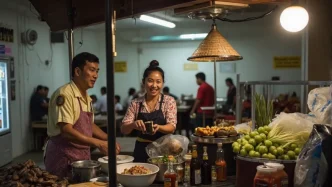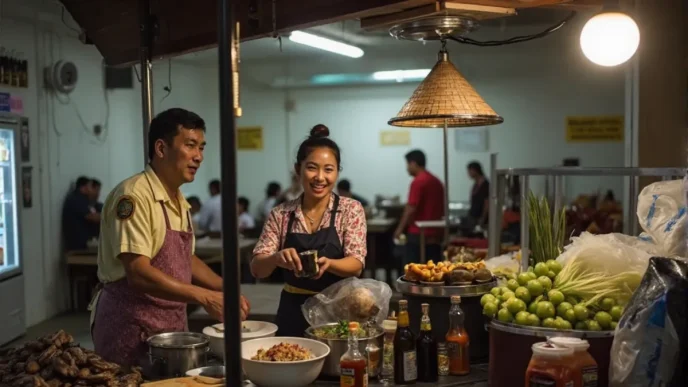Chiang Mai, Thailand’s northern cultural heart, is blossoming into a real estate hotspot in 2025, blending ancient temples with modern ambition. Fueled by a booming tourism sector, significant infrastructure investment, and a diverse buyer pool—from local families to Chinese investors and European retirees—the city’s property market is thriving. With 2.8 million visitors in 2024 and a growing expat community, Chiang Mai offers a lifestyle that drives demand for condos, houses, and luxury villas.
The city’s real estate market is capturing national attention. House and condo prices are rising 2–3% year-on-year, with rental yields between 5% and 7%, positioning Chiang Mai as a prime choice for investors. Supported by over $337 million in infrastructure projects, including airport expansions and urban mobility initiatives, the city is set for sustained growth. However, challenges like condo oversupply and zoning laws demand careful navigation.
The Market’s Vitality
Chiang Mai’s 2025 real estate outlook is driven by robust fundamentals. Houses and villas lead the market, but condominiums in vibrant areas like Nimmanhaemin and the Old City are gaining popularity. According to CBRE Thailand, house rentals average ฿15,200/month (~$400), with 4-bedroom homes renting for up to ฿22,800/month (~$600). Detached homes sell between ฿1.5 million and ฿4.9 million ($40,000–$130,000), with yields of 5–7% in high-demand areas.
Condos in the city center average ฿2.47 million ($65,000), while luxury villas rent for ฿10,000 to ฿45,000/month (~$260–$1,200) depending on location and amenities. The city’s 2.8 million tourist arrivals in 2024 have boosted short-term rental demand, particularly for condos and villas in tourist-friendly zones.
Q1 2025 Snapshot
| Metric | Value |
|---|---|
| Median House Rent | ฿15,000/month (~$395 USD) |
| 4-Bedroom House Rent | ฿25,000/month (~$658 USD) |
| Median House Sale Price | ฿3.5 million (~$92,100 USD) |
| Villa Rent Range | ฿5,000–30,000/month (~$132–$789 USD) |
| Median Condo Sale Price | ฿2.3 million (~$60,500 USD) |
| Rental Yields | 4.5–7% |
| Tourist Visitors (2025 Projection) | 2.5 million |
Infrastructure Driving Growth
Over $337 million in infrastructure upgrades are planned or underway in Chiang Mai through 2027. These include the THB 8.3 billion (~$218M USD) expansion of Chiang Mai International Airport, set to boost passenger capacity from 8 million to 20 million annually. A light rail feasibility study, budgeted at THB 2.5 billion (~$66M USD), aims to improve urban connectivity. Road and utility upgrades, costing THB 2 billion (~$53M USD), enhance access to emerging neighborhoods like Mae Rim and San Sai. These projects, part of Thailand’s infrastructure push, are elevating property values.
Chiang Mai Infrastructure Spending (2025) – $13.50 B USD
Chiang Mai – Condo & House Price Trends
Condo prices in Chiang Mai have climbed steadily, increasing approximately 2.5% year-on-year in 2025, according to CBRE Thailand. In prime areas like Nimmanhaemin, average condo prices rose from ฿2.41 million (~$63,500) in mid-2024 to ฿2.47 million (~$65,000) by mid-2025. Rental yields remain strong at 6–7%, driven by demand from expats, students, and tourists. Foreign buyers, primarily Chinese investors, account for 30% of condo purchases, though ownership regulations limit foreign share.
Detached houses and luxury villas are seeing similar trends. Average house sale prices rose from ฿4.1 million (~$108,000) to ฿4.18 million (~$110,000) in 2025. Luxury villas, averaging ฿8.36 million (~$220,000), have grown from $140,000 in 2020, a 57% appreciation. Rental yields for landed properties range from 5% to 6%, especially in areas near the airport and infrastructure corridors. High-end villas in Mae Rim, popular with European retirees (40% of buyers), appreciate at 4–5% annually.
Condo Prices in Chiang Mai
Luxury Condo Prices in Chiang Mai
House Prices in Chiang Mai
Luxury Villa Prices in Chiang Mai
Why Chiang Mai is on the Radar
Chiang Mai’s 5–7% rental yields outperform many Thai provinces. Ownership structures favor Thais for land titles, but long-term leases enable foreign investment in villas and condos. High demand from retirees, digital nomads, and medical tourists adds stability, and the planned light rail network is expected to reshape development patterns in areas like San Sai.
Navigating the Risks
While supply is more limited than in major metros, this benefits resale value. However, investors must account for risks like zoning compliance, utility access in rural zones, and developer track records. Legal review is advised for foreign investment, and land title types should be scrutinized. Condo oversupply, with 15,000 unsold units reported by CBRE, and resale liquidity remain concerns, but Chiang Mai’s fundamentals remain strong.
With urban development accelerating, Chiang Mai’s $337 million infrastructure pivot positions the city as one of Thailand’s most promising second-tier property markets in 2025.
















